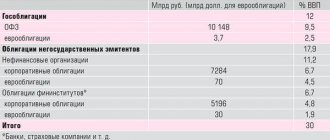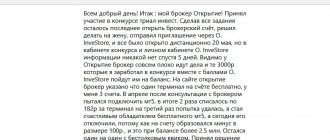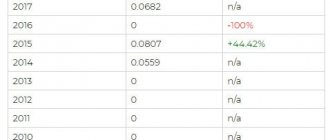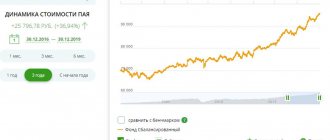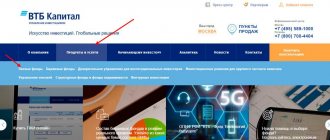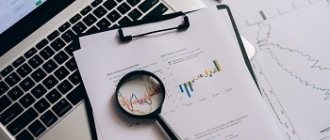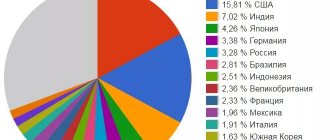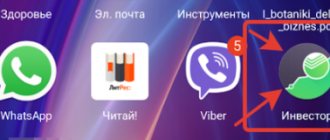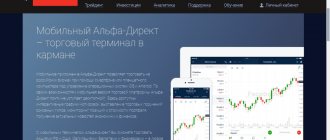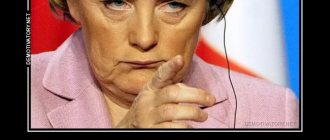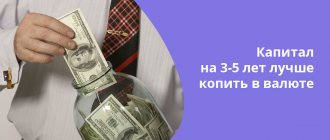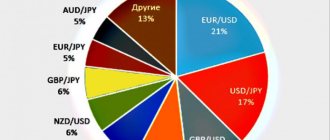An important characteristic of an investment portfolio is diversification, which reduces the level of investment risk. To achieve it, you need to purchase an index - a set of securities whose assets are distributed across different sectors. To assemble such a portfolio yourself, you will have to spend a large amount. ETFs were created to solve this problem. One of them is the FXRU ETF, which belongs to the Finex family. He himself creates a portfolio of securities according to the selected index. An investor, by purchasing a fund share, becomes the owner of a share of its assets.
FXRU ETF is a bond fund of Russian companies.
Main settings
- About a gram of gold per share (variable value - depends on NAV - net asset value).
- Cost of 1 ETF = <1000 rubles!
- Commission = 0,45%.
- Purchase currency: rubles, $ .
- Fund currency - $.
- The volume of assets in the fund is 85,254,267 €.
- Volatility = 14.4%.
- Prohibition on leverage.
- No dividends.
- This is not physical replication, but synthetic replication using swaps!
In June 2015, the fund stopped physically buying gold!
Full portfolio composition
The dollar fund's portfolio includes 25 Eurobonds of 15 Russian companies in various proportions.
Portfolio composition by category.
The distribution of ETFs by industry is as follows:
- energy - 36%;
- financial sector - 31%;
- raw materials - 28%;
- industry - 4%;
- other - 1%.
Composition of the FXRU ETF portfolio by share participation of Russian issuers
| Company | Share, % | Company | Share, % |
| Gazprom | 14,2 | Vimpelcom | 5,6 |
| Gazprombank | 10,4 | "Lukoil" | 5,2 |
| Sberbank | 9,5 | Russian Railways | 4,3 |
| VEB | 8,1 | "Transneft" | 3,4 |
| Alfa Bank | 7,4 | "Alrosa" | 3,3 |
| RSHB | 7,1 | "Metalloinvest" | 2,8 |
| VGB | 6,8 | "Norilsk Nickel" | 2,7 |
| EVRAZ | 5,7 | Other | 3,3 |
Forecast
There is an opinion that printing money will accelerate inflation and the entire materials sector, and investors will run to save themselves in gold.
Including central banks. Gold imports in 2021 have increased noticeably since the printing press was turned on.
Gold imports by country over time
Possible potential up to 2011 price level.
An alternative opinion on investing in gold
There is an alternative opinion of Maxim Orlovsky from Renaissance Capital that gold is no longer a defensive asset, since it has no practical value. The purchase of gold by the world's central banks is an atavism.
Summary
Prices are most likely to rise as long as the Central Bank implements quantitative easing programs (i.e., in other words, print money!)
Possible growth potential is limited.
Which ETFs are sold on the Moscow Exchange
ETFs appeared on the Moscow Exchange listing recently - in 2013. In total, there are 16 of them traded on the site:
- FinEx has 13 funds
- 2 belong to ITI Funds organization
- 1 - Sberbank.
FinEx
FinEx is based in Ireland and has extensive experience in managing ETFs.
The Central Bank of Ireland and the FCAESMA organizations act as regulators. That is, they are regulated by our Central Bank and foreign regulators, which, of course, increases the reliability of the company.
It is also worth noting that more than half of European ETFs are created in Ireland, thanks to the liberal tax regime in this country.
BPIF Sberbank
Sberbank offers its own investment fund, which is something between mutual funds and ETFs. The fund itself follows the Moscow Exchange index, with assets acquired and managed. The investor can choose the percentage of assets to be purchased: shares, government bonds and Eurobonds.
The product from Sberbank is popular in Russia due to the reliability of the bank itself and the extreme simplicity of the investment process.
ITI Funds
The Luxembourg company ITI Funds entered the Russian market in 2018 and offers investors 2 types of funds.
It’s too early to say anything about ITI Funds: the company has too little experience in managing exchange-traded funds, and the jurisdiction of the Luxembourg regulator CCSF is confusing. Those wishing to invest are still looking at the product with caution.
pros
Low correlation of gold compared to other assets.
low correlation with other asset classes
With new QE (money printing), gold responds best to rising inflation. Bank of America gave a forecast for gold from $2,000 to $3,000.
comparison of inflation and growth of s&p500 with gold. When inflation is strong, gold rises, stock returns fall
This is a rare commodity that has always been a measure of value. If you collect all the mined gold and melt it down, you will get a cube with a side of only ~21 meters .
If you could graphically represent all the gold ever mined in the form of a cube
- There is no need to pay VAT on purchases, as with gold bars.
- Historically, gold investments have always outperformed inflation. ( from 2003-2019 in Russia, inflation increased by 3.99 times ; gold prices - 8.63 times ).
- Considered a protective sector. Well diversifies the portfolio.
- One of the most liquid ETF instruments on the Moscow Exchange (MOEX).
- You can buy both for rubles and for $ .
- You can buy it on IIS, LDV is valid.
- Fees will decrease as NAV (net asset value) increases. Essentially new participants.
- Protection against devaluation.
- Since 2013 on the Moscow Exchange.
- High tracking accuracy.
Investment conditions
ETFs are popular for their affordability. In order to invest in a Russian Eurobond fund, you only need to have an open brokerage account with access to the Moscow Exchange.
Share price
The cost of one share at the beginning of 2021 is about 950 rubles. You can buy in 3 currencies: rubles, dollars and euros.
The cost of one share is about 950 rubles.
Profitability
The profitability of an ETF is due to the fact that it does not pay dividends to the owners of the fund's shares, but immediately reinvests them in other securities. Due to this, the price of the asset increases.
FXRU's annual return for 2021 is 4.64% in dollars, or 7.27% in rubles.
Minuses
- Gold prices are trading at their highest levels in recent years. A price reversal is possible.
- Insiders began to sell off gold assets due to historical valuation to invest in more promising sectors - example
. - During a sell-off in the markets, gold may also fall sharply, as investors sell what has fallen less in order to buy something cheaper.
- No dividends . But you can sell a share in that amount, as if dividends were paid (you can determine the percentage yourself).
- Geopolitical risks (funds registered in Ireland). True, it is worth noting that most ETFs are registered there.
- Warren Buffett doesn't like investing in gold.
gold sales in the March fall
Average gold prices by year. Current values are quite high (at time of writing >2000 per ounce)
What are ETFs and why are they needed?
Exchange traded funds are called Exchange Traded Funds (this is what the abbreviation stands for). They are similar to mutual funds (MUIFs), but have several major differences.
The main thing: ETF is an unmanaged asset. The manager of an ETF fund periodically simply buys additional securities and does not try to speculate on the difference in rates, unlike mutual funds. ETF prices simply follow the market.
Who needs these funds? Let's look at a simple example. You decide to buy shares of top companies for $1000. To assemble a more or less diversified portfolio, you need to invest in at least 50 different securities. It's just difficult to do this.
Firstly, you will have to manually work with each of these shares: buy, sell, track quotes, in general, considerable labor costs. Secondly, each stock has its own price; it can cost either $1 or $200; in the end, you simply won’t have enough money to assemble a full-fledged portfolio.
But there is a way out. There are a lot of investors like you in the world. You can chip in together and collect several million dollars, with which you can easily purchase shares of top companies. In this case, each team member will have a fixed share in the common pot depending on the amount contributed. If all purchased shares grow on average, the fund's capital will increase, and you will own a piece of an already larger pie.
The process is extremely simple: buy an ETF, wait for growth without having to guess which stock out of thousands of possible ones will bring profit.
How to buy ETF FXGD for an individual (private)
I recommend the broker Tinkoff Investments. I wrote more about the choice in this article.
A month of service as a GIFT
Tinkoff-Investments
until September 1, 2020
for new accounts
Open an account
You can open an account with a broker using this link.
There is a promotion going on now - when you open an account and top up by 10,000 rubles - you receive a month of free service as a GIFT!
What to do next
- Go to the "" tab in the applicationWhat to buy«.
- Enter the ticker " into the search barFXGD" for purchase . Choose Funds - FinEX Gold.
- Click "Buy» - select an account - Regular or IIS (IIS is more profitable) - for more information about IIS, read the article.
- Can be purchased at market value. Then simply enter the number of lots to purchase. And press " Buy«. IMPORTANT: Remember that 1 lot contains 1 share!
- Or you can submit an application at a price that suits you (limit). Click on the button " Applications» — and enter the price yourself. The order will be executed when the price is reached.
My Instagram - Join.
Features of taxation
The fund itself reinvests money from bond coupons. As a result, the funds remain within the fund. Accordingly, investors pay income tax only once when selling fund shares.
Also, the price of FXRU shares directly depends on the dollar exchange rate. This leads to the fact that when it changes, it becomes necessary to pay tax for the exchange rate difference.
There are several ways to save on government payments:
- Buy fund shares through an individual investment account (IIA). If you have an IIS type “B”, you will be able to return the money through a tax deduction 3 years from the date of its opening.
- Own assets for 3 years or more. In this case, you receive a benefit and are exempt from 13% personal income tax on the sale of securities.
ETF costs and taxation in Russia
Moscow Exchange ETFs have double regulation, which increases their reliability. But to whom and how to pay taxes for them? Fortunately, there is no double taxation: taxes must be paid to the treasury of the Russian Federation.
Failure to receive dividends exempts investors from paying taxes. Personal income tax of 13% will only have to be paid when selling your ETF shares. If an investor keeps securities for more than three years, he will receive tax benefits in the amount of 3 million rubles for each year of ownership.
It is worth noting that all taxes will be automatically written off by the broker; investors do not need to bother with this matter.
